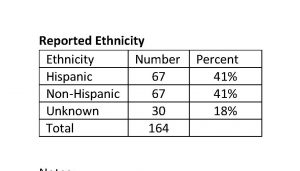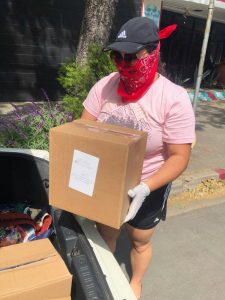
Butte County’s Latino residents are becoming infected with COVID-19 at an alarmingly disproportionate rate, a reflection of the disparities surfacing throughout the nation that show low-income, immigrant and other minority communities hardest hit by the pandemic.
Figures released earlier this week to ChicoSol in response to a Public Records Act request show that people identifying as Hispanic comprised 41 percent of 164 Butte County residents who had tested positive for COVID-19 through June 28. Latinos and/or Hispanics make up less than 15 percent of the county’s population, according to estimates, but belong to what is by far the county’s largest minority group.




